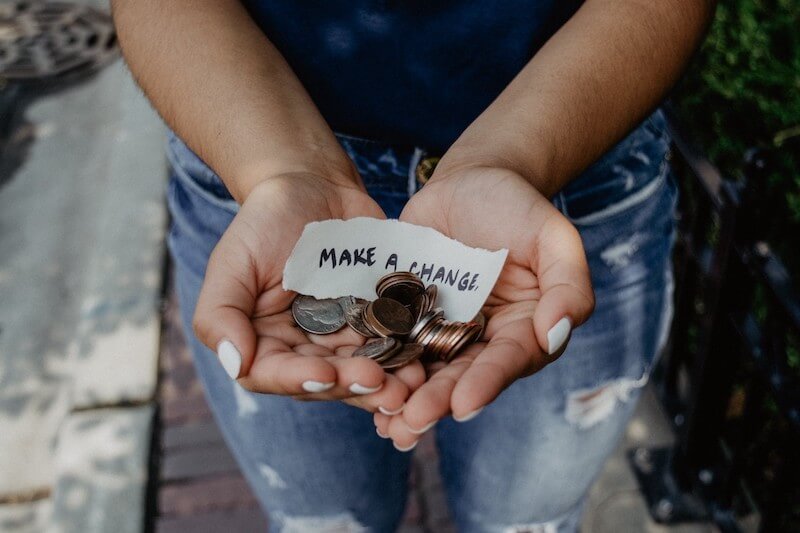The glaring hole in her donation plan and why it sends a terrible message to others
Love Amazon or hate them, no one disputes that MacKenzie Scott is very well off, owning 4 % of Amazon stock. Ms. Scott has taken the huge step of committing to donating the vast majority of her wealth to non-profits.
When you look at the list of causes she has donated to, one group is glaringly underrepresented: disability.
Ms. Scott describes her own approach to philanthropic giving in several Medium articles:
- 116 Organizations driving change
- 384 ways to help
- Seeding by Ceding (286 Teams Empowering Voices the World Needs to Hear)
She further describes her categories of giving as:
- Racial Equity
- LGBTQ+ Equity
- Gender Equity
- Economic Mobility
- Empathy & Bridging Divides
- Functional Democracy
- Public Health
- Global Development
- Climate Change
Ms. Scott specifically identifies in her most recent Medium article that the LGBTQ, Racial Equity, and Women’s organizations receiving donations from her are largely run by people with lived experience.
However, Ms. Scott’s extremely limited donations to one disability-focused cause that is largely run FOR, not BY people with disabilities.
Ms. Scott’s only substantial donation to date to a disability-focused organization was to Easterseals. That thoughtful donation was metaphorically obliterated by her donations to Goodwill. Fifteen percent of Goodwill locations continue to pay under minimum wage to employees with disabilities. This technically legal but HIGHLY discriminatory and frankly disgusting practice was far more widespread at Goodwill until the disability community started loudly protesting it several years ago.
Every time a lottery where I live goes over $100 million, I buy a ticket.
Not because I think I will win, but because it is an inexpensive way to dream about what I would do with that kind of money.
- Funding technology training programs for people with disabilities is almost always at the top of my list. I have a personal long-term dream of starting an accessibility apprenticeship program for people leaving incarceration — a career that pays well, is in demand and doesn’t require a college degree.
- Next would be organizations that produce low-cost, bespoke assistive technology like the Emerging Tech Lab (ETL) at Rancho Los Amigos National Rehabilitation Center (RLANRC) and the folx at NVDA. I would love to fund the creation of screen readers that interpret lesser common, indigenous languages.
- Knowbility would also be the recipient of some of my lottery winnings largesse as one of only two US non-profits focused entirely on digital accessibility, employing many people with disabilities. The GAAD Foundation is the other accessibility-related non-profit that I wholeheartedly endorse that could use some funding.
- Medical research in cures for diseases like Type 1 Diabetes, Spinal Muscular Atrophy, Multiple Sclerosis, and Cystic Fibrosis would be next on my list. Society’s reliance on big pharma for any medical treatment with costs running from $8000 per year to over $2 million is discriminatory and unconscionable.
It’s her money. She can give it to whomever she wants. Why do you care?
Every time MacKenzie Scott writes one of her Medium donation announcements, she gets a ridiculous amount of press and publicity just from the sheer amount of money she is giving away. However, through these donations and the details published in the announcements, MacKenzie Scott is (probably inadvertently) sending five unfortunate, subtle messages to the general public regarding her donations to date:
- People with disabilities are an afterthought, not a legitimate dimension of diversity and inclusion.
- The needs of people with disabilities are less important than the needs of the groups promoting LGBTQ+, Gender, and Racial Equity issues.
- Only disability charities that look at disability through the lens of “congenital birth defect” are worth donating to.
- Lived experience is unimportant when choosing a disability non-profit to donate to, but extremely important for other equity groups.
- Non-profits who commit acts of disability discrimination are still worthy of donations.
Ms. Scott, people with disabilities deserve to be treated with the same consideration that you provide all of the other great causes you are donating to.
You have the opportunity to change your approach in a future round of giving.
Please consider doing so. Meanwhile, I will keep dreaming about the accessibility apprenticeship program I will start if I win the lottery.
